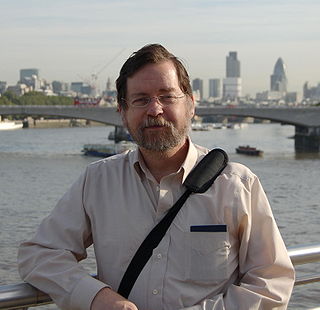A Quote by Freeman Dyson
Trouble arises when either science or religion claims universal jurisdiction, when either religious dogma or scientific dogma claims to be infallible. Religious creationists and scientific materialists are equally dogmatic and insensitive. By their arrogance they bring both science and religion into disrepute.
Related Quotes
In no other field of scientific endeavor do otherwise intelligent people feel free to make public claims based on prejudice and ignorance. Yet in relation to psychic phenomena, committed materialists feel free to disregard the evidence and behave irrationally and unscientifically, while claiming to speak in the name of science and reason. They abuse the authority of science and bring rationalism into disrepute.
Science has only two things to contribute to religion: an analysis of the evolutionary, cultural, and psychological basis for believing things that aren't true, and a scientific disproof of some of faith's claims (e.g., Adam and Eve, the Great Flood). Religion has nothing to contribute to science, and science is best off staying as far away from faith as possible. The "constructive dialogue" between science and faith is, in reality, a destructive monologue, with science making all the good points, tearing down religion in the process.
Both Kant and Fichte thought of traditions of revealed religion as ways of symbolically (that is, with aesthetic emotional power) thinking about our moral condition. Both thought that religion would become more and not less powerful, emotionally and morally, if the claims of scriptures and religious teachings were taken symbolically rather than literally (whatever 'literally' might mean in the case of claims that are either nonsensical or outdated or historically unsupportable if taken as metaphysical or historical assertions).
The antagonism between science and religion, about which we hear so much, appears to me to be purely factitiousfabricated, on the one hand, by short-sighted religious people who confound a certain branch of science, theology, with religion; and, on the other, by equally short-sighted scientific people who forget that science takes for its province only that which is susceptible of clear intellectual comprehension; and that, outside the boundaries of that province, they must be content with imagination, with hope, and with ignorance
In all modern history, interference with science in the supposed interest of religion, no matter how conscientious such interference may have been, has resulted in the direst evils both to religion and to science, and invariably; and, on the other hand, all untrammelled scientific investigation, no matter how dangerous to religion some of its stages may have seemed for the time to be, has invariably resulted in the highest good both of religion and of science.



































